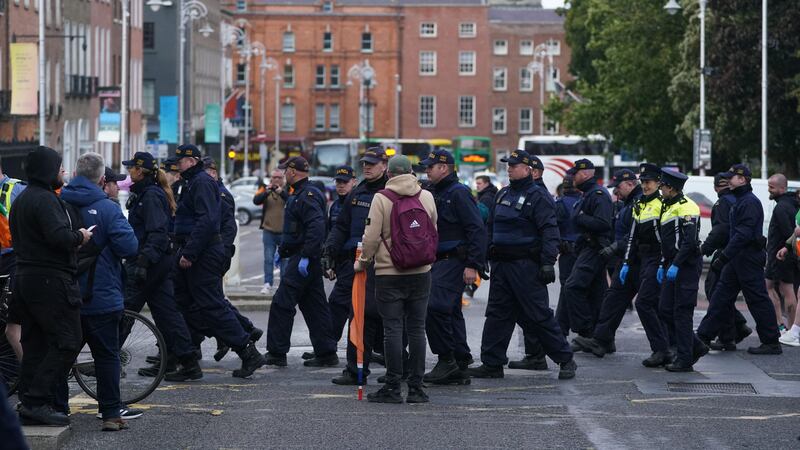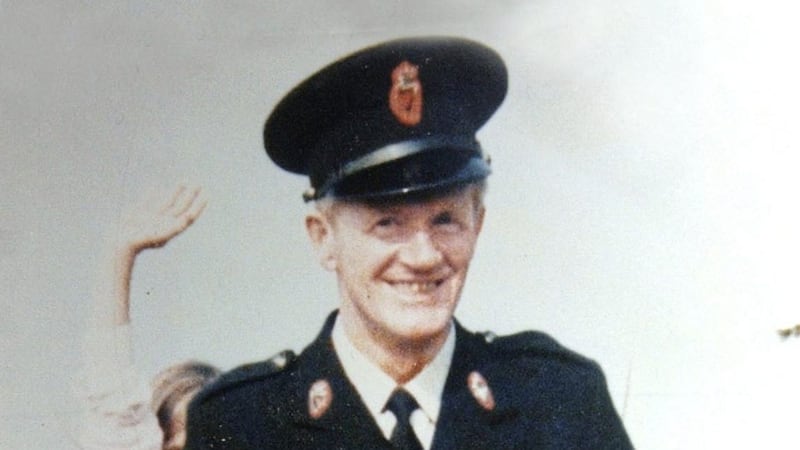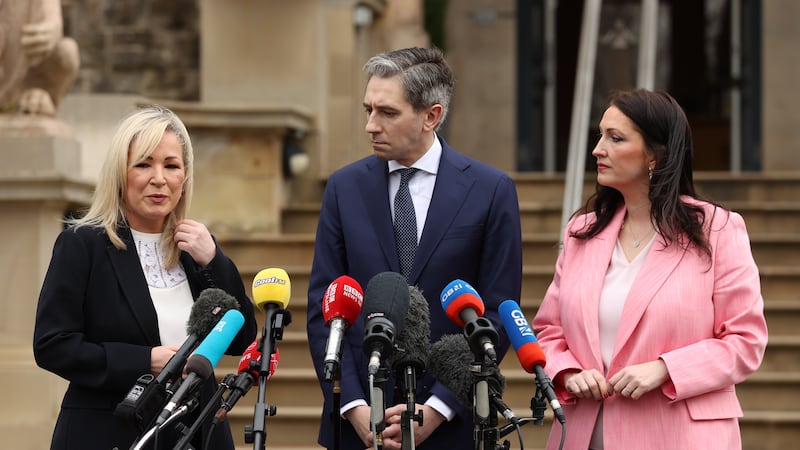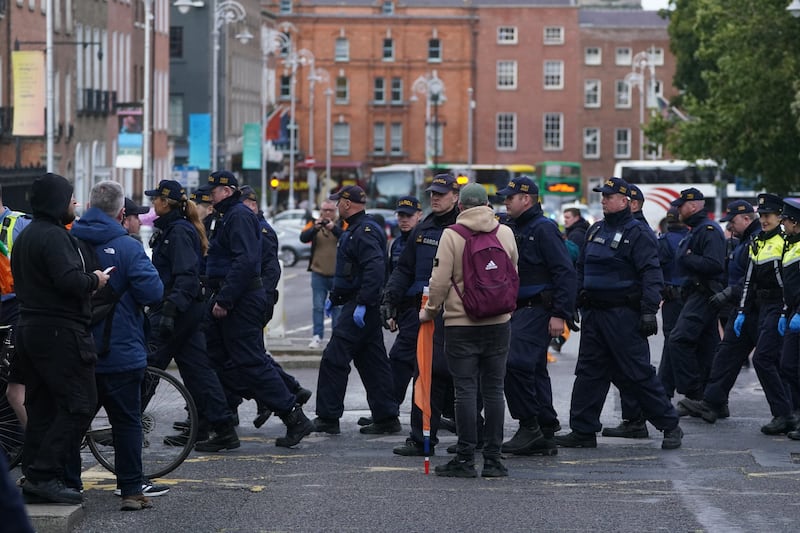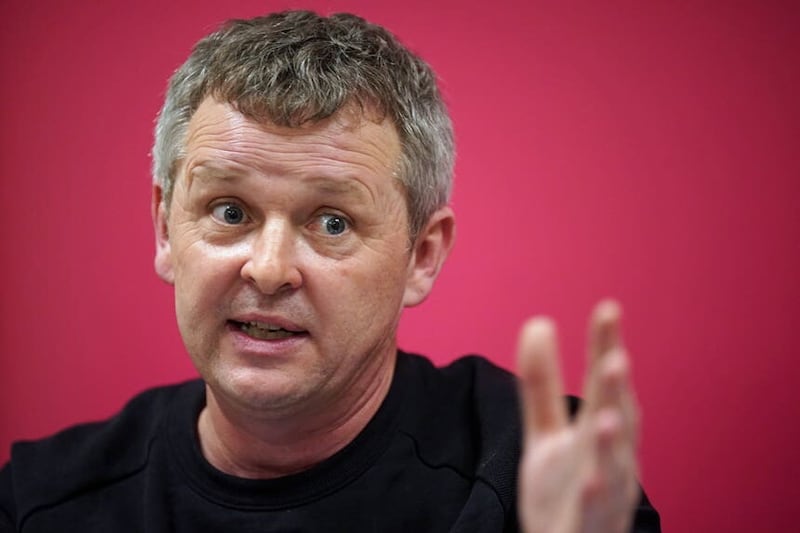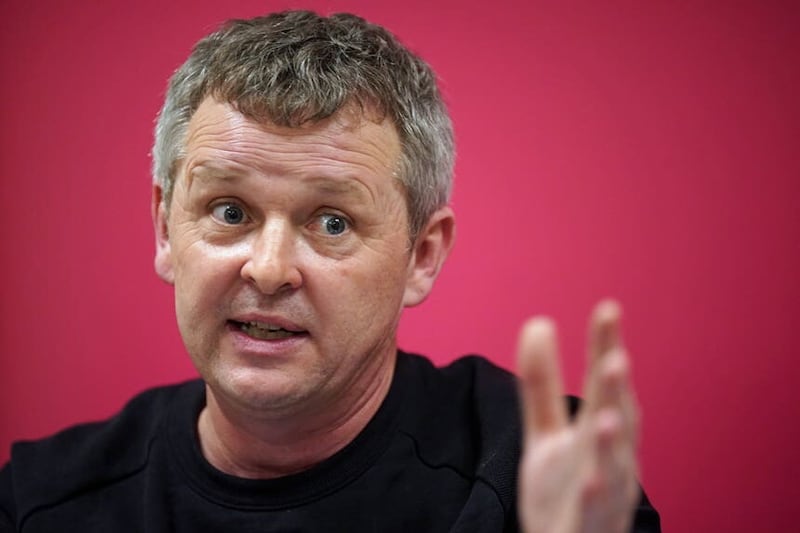The Ceann Comhairle has pledged to protect Irish democracy from “hate mongers”.
Violent scenes marred the first day back at Leinster House last week following the summer recess.
Gardai had to move in on Wednesday as demonstrations saw entrances to Leinster House blocked and included a mock gallows featuring ministers and opposition TDs.
The Ceann Comhairle Sean O Fearghail has met with senior members of An Garda Siochana, but said no conclusions have been reached around security.

He said a review on what happened and how it was handled will be “ongoing over a period of time”.
Speaking to Newstalk Radio, Mr O Fearghail said he and his colleagues have a fear of a repeat of what happened in Great Britain where MPs Jo Cox and David Amess were killed.
But he said they did not want to create a “parliament at a remove, some sort of ivory tower that cannot be approached by the Irish public”.
“We don’t want that, but neither can we allow staff or members to be intimidated, vilified and threatened as they were in the course of this week,” he said.
Mr O Fearghail said they are looking at the situation in a “nuanced way” to ensure peaceful protests can continue.
“If the IFA or the INTO or whoever are doing one of their normal traditional protests at Dail Eireann, I don’t see any need for any radical change in how those protests are dealt with,” he said.
“If on the other hand an unknown group or a malevolent group such as this who have been signalling their intention on social media over a period of time, are intent on coming, then there should be great care taken to ensure that they cannot impede access to and from Leinster House.”
He also said Ireland “needs to wake up as a country” in light of the demonstrations that previously took place at libraries and refugee centres.
“We need to protect those who are going about their normal daily work and who in their work are trying to serve society to the very best of their ability,” he said.
“There are no ideal solutions to this kind of thing where you have people who have ill intent, their purpose is to spread hate, to threaten and intimidate. They cannot be entirely stopped in their tracks.
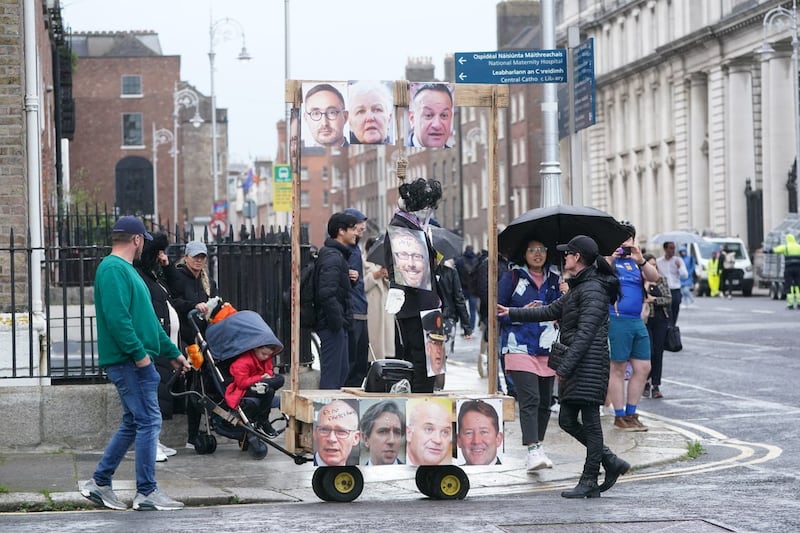
“They’re going to gather and amalgamate and do their thing somewhere, but in doing whatever it is they’re doing, they must be curtailed by the gardai in terms of their policing of such an event and they cannot be allowed to interfere with the normal movement of staff members in and out of the houses of parliament.”
He said they are determined that tours and visits to the Oireachtas will be facilitated, but said staff will be alert to the possibility of protesters attempting to gain access.
“We’re talking about being able to identify people who have established a reputation for a particular type of behaviour and not allowing those people to walk in the front gate and behave in Leinster House as they have behaved inappropriately,” he said.
“That would be a sensible security approach to adopt … we are talking here about an infinitesimally small cohort of people who have now become professional hate mongers, people who have been spreading their poison around the country at various locations, intimidating other people.
“It’s reasonable if these people can be identified that the House would have at its disposal some sort of means, subject to all proper standards and protocols of identifying these people and ensuring they don’t inadvertently gain access to Leinster House.
“If rot sets in and it’s not arrested then it spreads, and if this particular rot is not dealt with, it will inevitably extend and it’s a fear I have and a fear that many of my colleagues have, is that we will reach a point where we have some awful event such as happened in Britain with Jo Cox and David Amess. We can’t go down that road.
“This, at the end of the day, is about protecting democracy, and democracy needs to be protected. It needs to be tended, it needs to be nurtured and we have seen what happens in countries where that hasn’t happened. I’m not prepared to stand idly by and see that happen here.”
